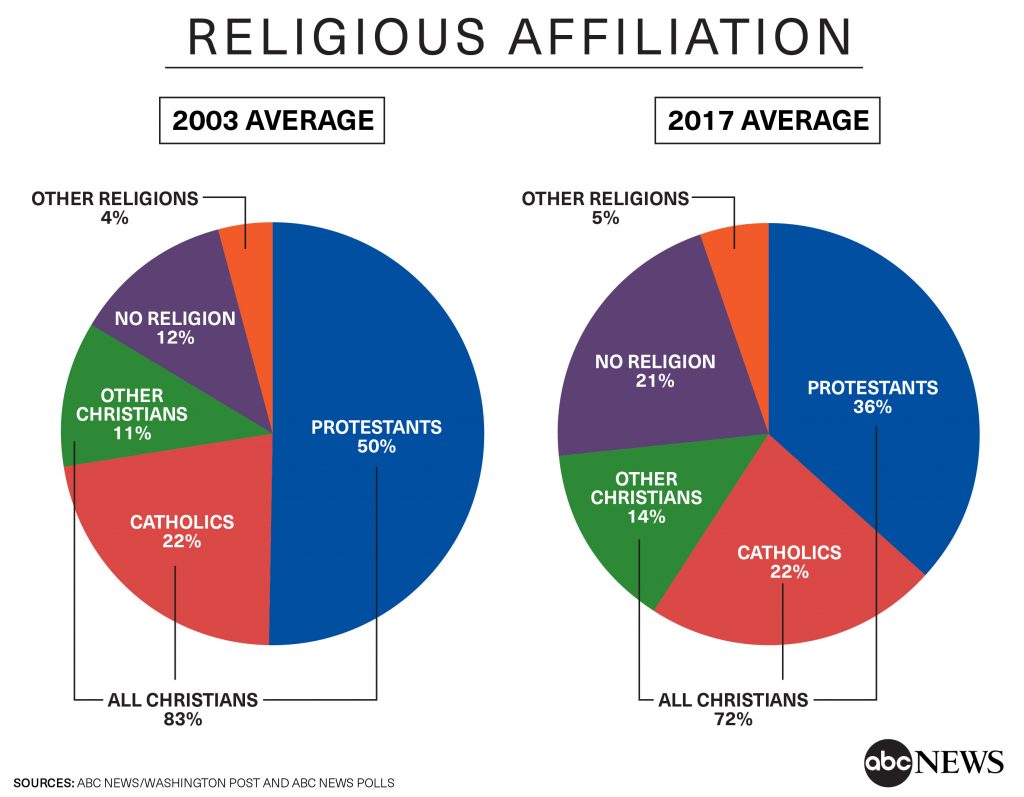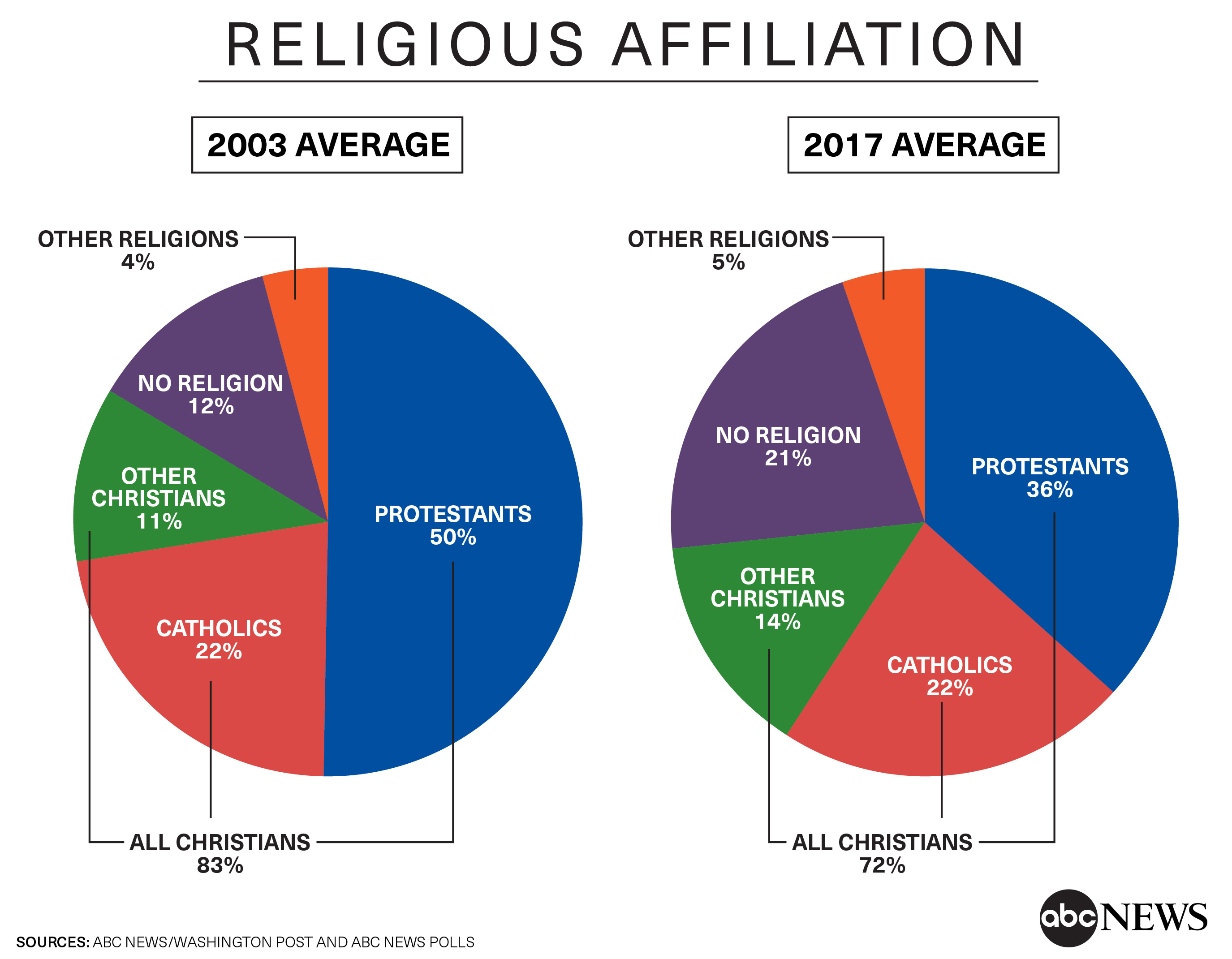
Another week and another poll showing what we already know, religion is on the decline in the United States.
Recently, ABC News and the Washington Post released a poll about adherents to the Protestant Church in the United States. The poll shows a shift from 12 percent in 2003 to 21 percent today in the number of people who say they have no religion, the question is, how are they defining religion?
Poll people and asking if they belong to a church is not an accurate gauge of where or not they have religion. Church attendance, or membership, is only one way to determine if someone “has religion” or not. I am amazed that this is still the only marker we have to determine this.
As a church leader, for the last 15 years, I have watched the steady decline in church attendance, but I have also noticed an increase in the amount of spiritual activity in the people around us. Sure, people do not walk inside the brick and mortar building on Sunday but when are we going to realize that that is not the only way people have of expressing a belief in something more substantial than themselves.
With that said, we, and by “we” I mean church leaders at all levels, only have ourselves to blame for the decline.
I regularly hear from people who say that “the church” has no relevance in their lives. We do not speak to the issues that they are grappling with in their lives, and we hold to an outdated sense of who belongs and who does not belong.
A hundred years ago we built these massive church buildings that take an enormous, almost grotesque amount of money to maintain and operate. Church leadership spends most of their time focusing on how to keep the building open and less and less time on ministry in their community where the building is. These vast temples to a once great thing mostly stand empty during the week. People walk past them without giving them a second thought as they have no relevance in their lives. Church leadership is paralyzed with fear of being sued, and other such nonsense that they will not open their buildings to community groups or other support groups and God forbid they open their doors to the homeless population that often sleeps on the steps of the church.
The more significant problem is, and this goes to the relevance statement above, more people know what churches are against rather than what they stand for.
Not a day goes by that some church leader somewhere is releasing a statement condemning this or that behavior. They stand there, in righteous indignation, as they pronounce that God has spoken to them and they “feel compelled” to call out sinners. That is funny; I thought our job was to love people and serve the “least of these” as Jesus commanded us to do.
No surprise, but the poll shows that the largest segment of the population with no religious affiliation is the 18-29-year-olds, 35 percent.
I was recently in a meeting of church leaders, including someone from this group, and I mentioned that if we had any hope of reaching that age group or being relevant in their lives we had to start speaking their language and be interested in what they were interested in and caring about what they care about. We cannot hope to reach a generation that is focused on social justice issues like gun control, poverty, education costs, and the like if we still preach the “Leave it to Beaver” message of the 1950’s those days are gone!
The bottom line is this, the church is not dying, the institutional church might be dying but spirituality and community are on the rise, and we need to figure out how to be part of it. Dinner and table churches, pub theology, interactive Bible studies and discussion groups, listening sessions with young folks, taking a stand on issues, and not being afraid to preach the gospel that we need to love everyone and that all people have inherent worth and are created in God’s image.
We need to stop condemning and start celebrating like the Easter people that we are!
ABC News/Washington Post Poll on the Decline in Religion

